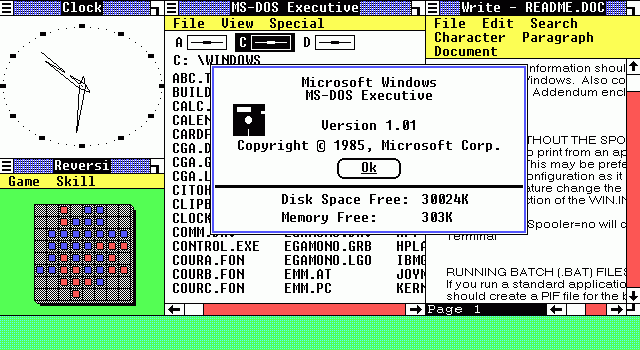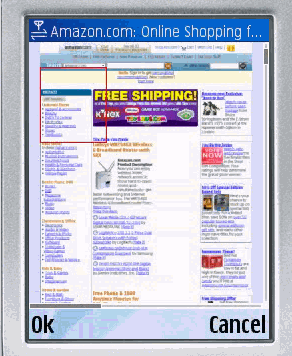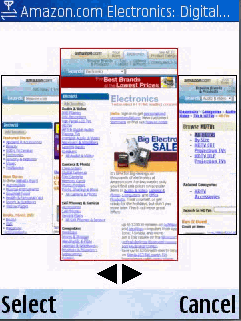It’s happened. My Apple friends, you know the ones who run around proclaiming the Mac’s greatness, have gotten their hands on iPhones. Now I will be subjected to claims about how great the iPhone is and how it changes everything in the cell phone market. Already they are asking whether, Nokia, the global leader with 400 million phones sold per year and approximately 50 000 employees devoted to exactly one market is doomed, doomed I tell you.
Let us, for a moment, exit the Steve Job’s reality distortion field. So I’ll make two seemingly contradictory statements:
- The iPhone’s success is critical to Apple.
- Even if the iPhone succeeds it is irrelevant to and will barely affect the broader cell phone market.
Let me start with (1).
Apple has consistently occupied a niche in the broader general personal compute market. A market I define to include all devices that people use to browse the web, message, entertain themsevles and generate content with. If you exclude the biggest segment, the cell phone, Apple’s global share of the PC market is an almost irrelevant 5%. The problem for Apple is that the 5% Apple owns is absolutely irrelevant to the emerging personal compute platform that is the cell phone. In other words, regardless of whether Apple owned 10 or 15% of the laptop market without some kind of cell phone strategy the long term prospects of the company were questionable. The thesis for this argument is that as more and more users migrate to cell phones to do most of their laptop activities, the value of the laptop declines and the value of the cell phone as their dominant personal compute platform increases. In other words, over time, the cell phone becomes the laptop, the laptop becomes the desktop, and the desktop becomes the mainframe. Why this is important to Apple, is that Apple’s market tends to self select among people who are willing to adopt newer and more exotic technologies. There was always the possibility that the right phone may affect Apple faster than the broader Microsoft market.
Furthermore, the reality is that unlike Microsoft, who after 6 years of trying finally has finally produced a credible cell phone OS that actually runs on a non-trivial amount of cell phones Apple had zero presence in the market. Vista and Mobile Windows are fairly well integrated and that the integration creates the possibility that the Mobile Windows may drive Windows OS sales over time. This could, in theory, impact Apple’s long term (tiny) position in the computer market.
Apple had two strategies open to it. One was to try and get cell phone manufacturers to adopt the Mac OS or Apple applications preserving some kind of presence in the cell phone market. The second was to build their own custom designed cell phones. Proving, again, that Apple is a hardware and not software company, the strategy they chose to adopt is to build their own phone with their own OS. In effect, Apple decided that Apple needed to build their own device so as to provide a home for their fans so as to preserve Apple’s overall share of the personal compute market.
In fact, the iPhone’s success is critical to Apple. If the iPhone flops, this may create an oppening for some of those Apple users to migrate to other computer platforms. The reason may be better integration with their dominant compute platform, namely the cell phone. Thankfully, for Apple, the early news is that the ancient hardware platform they built has been a smashing success with their fans, thanks to the rather clever software interface they built. So kudos to Apple!
Having just congratulated Apple on their first phone, I am worried that the first cell phone they produced was already ancient in terms of hardware technology. The cell phone market is not the mature PC market. The cell phone is a rapidly evolving hardware platform. There is an open question as to whether Apple can simultaneously sustain the level of innovation in both the PC and cell phone market necessary to compete over the long haul. An iPhone that is always two years behind the rest of cell phone market becomes less interesting over time.
Now let me address point (2):
Even if the iPhone succeeds it is irrelevant to the broader cell phone market and will barely affect the broader cell phone market.
The most irritating aspect of the Apple fan is his belief that the iPhone will somehow change the dynamics of cell phone market or perhaps even disrupt the dominant player in the cell phone market, Nokia. The central thesis of the argument is the following:
- The iphone is like the ipod, a disruptive technology, that the major players will be unable to react to
- Because the iphone is like the ipod, a disruptive technology, Apple will become the dominant cell phone player
- The cell phone manufacturers will go out of business and Apple will finally rule the computer market!
Before I even point out why I think this argument is deeply flawed, let me observe that the iPhone is irrelevant to the broader cell phone market.
The total cell phone market is approximately 1 000 000 000 cell phones (http://www.ipsnews.net/news.asp?idnews=36161) per year. If the iPhone sells 5 million per year that’s 0.5% of the global market. As a point of comparison, Nokia sold 106 million phones in the quarter ending Jan 1st 2007 (http://www.infoworld.com/article/07/01/25/HNnokiasalesup_1.html)
Heck even in the United States there are approximately 120 million subscribers between verizon and att. Assuming 1 cell phone per subscriber, if the iPhone sells 10 million units it will have hit ~8% of the verizon/att market and less than 4% of the total US market.
Practically speaking the iPhone may eventually own a tiny market of the global market, but is utterly irrelevant in the places where the growth in phones is most dramatic (the emerging markets of China, India and Africa) because of the cost and form factor of the device.
The most optimistic scenario for the iPhone for it’s impact therefore, is the following:
I think in the most optimistic scenario,the iPhone is to the general mobile cell phone market what the Mac is to the PC: pushing a few trends faster but generally irrelevant.
Of course, anyone who believes in disruptive technology will gladly point out that the dominant players are never weaker than when they appear strongest.
So is the iPhone like the iPod, disruptive to the rest of the cell phone market?
I think the answer is no. The iPod was disruptive to the personal media market because it was the first device that had enough capacity to carry most of your music as well as an elegant form factor. The iPod was, therefore, able to take advantage of the transition of media to digital form. The reason no one else was able to respond was that the players in the market at the time were either too small to compete with Apple or (cell phone manufacturers and Microsoft) completely missed the boat.
The iPhone has a pretty UI on top of a marginal hardware platform. Apple has not invented the first usable cell phone. Apple may have invented the first usable cell phone based web browser. However, the problem is that the cell phone vendors are not some puny players that are incapable of reacting and Apple’s global share is too small to make their current advantage meaningful. The most reasonable claim is that Apple’s disruptiveness is tied to the fact that they do software and they understand industrial design. The problem is that cell phone vendors understand industrial design (Motorolla RAZR) and increasingly understand the value of software (possibly because of Microsoft). The major cell phone manufacturers are aware of the importance of the software platform and have been aggressively investing and re-organizing to become software players. If you combine their ability to innovate in hardware, their manufacturing capacity, their global reach and their new found focus to create software the most likely outcome is what I said earlier:
I think in the most optimistic scenario,the iPhone is to the general mobile cell phone market what the Mac is to the PC: pushing a few trends faster but generally irrelevant.
I just don’t see the cell phone vendors falling asleep and giving Apple the time necessary to build the capacity necessary to compete with them. Of course, I could be wrong, but it seems extraordinarily unlikely.
I still believe the largest long term threat to the cell phone manufacturers and in particular Nokia is Windows Mobile because of the increasing integration between the cell phone and the laptop. Having said that, the laptop may become irrelevant over time, making that integration a niche part of the overall personal compute market.
In short, bravo to Apple for introducing a good phone. But unlike Steve, I believe this changes nothing.
 The release of Windows 8.0 was a bold statement about the future that I agree with. The future of computing is touch screen devices with optional keyboards. And that an operating system that can make both work will win.
The release of Windows 8.0 was a bold statement about the future that I agree with. The future of computing is touch screen devices with optional keyboards. And that an operating system that can make both work will win.
